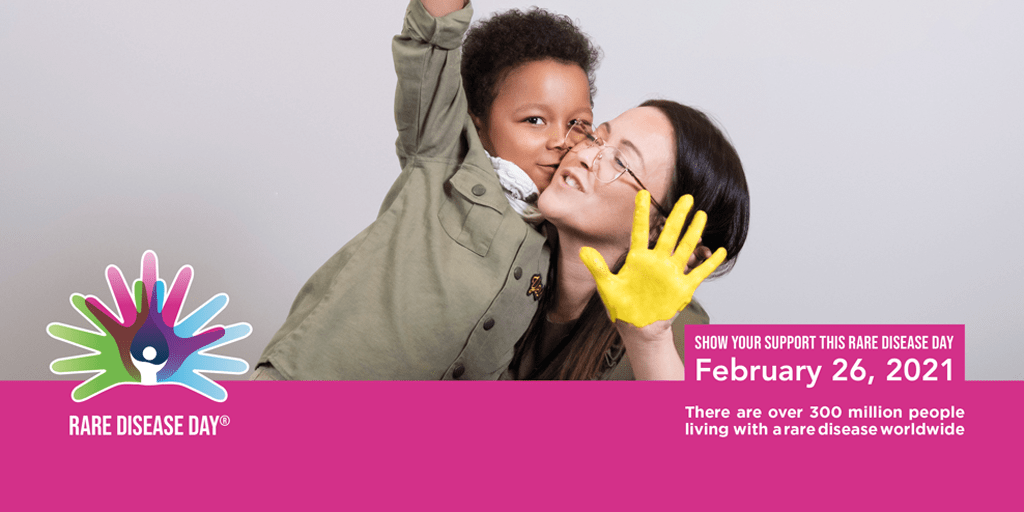
Amid a global pandemic that has put a spotlight on health inequity, we asked the speakers of our 2021 Rare Disease Day how the life sciences industry and patient advocacy community can work together to overcome racial disparities in rare disease diagnosis and treatment. Here is what they had to say:
“More than 30 million Americans are living with a rare disease – one in every 10 people – making the overall incidence of rare disease not that rare. Unfortunately, for many it will take several frustrating years for an accurate diagnosis. And for ethnic and racial minorities, this journey can be even more challenging.
“While health inequities are not a new issue, the COVID-19 pandemic put a spotlight on these challenges as minority populations are getting sick at a disproportionate rate and are the most severely affected. To help overcome health inequities, the life sciences industry has a responsibility to engage with patients who truly represent the communities we serve – reflecting all races, genders, ethnicities, and socioeconomic backgrounds – to glean meaningful insights.
“By engaging with diverse patient populations, we can better understand and address key insights we uncover about topics like: what might deter them from engaging in clinical trials, commonly-held misperceptions about their condition or treatments, and the sources of information they trust and turn to most.
“Because no patient should have to decide between their health and basic life expenses, we also need to work with payers to develop access strategies for broader patient populations to help overcome racial disparities that present even greater obstacles to the diagnosis and treatment of rare disease.
“As an industry, we can use deeper patient insights to more effectively engage, educate, and meet the underlying needs of the diverse patients who count on us for their health and wellbeing.”
– Heather Dean, Vice President, Hematology Franchise Head
“Fully acknowledging the racial disparities and the huge gap in access to care for the rare disease community is one way the life sciences industry and rare disease advocates can raise more awareness around this issue. Secondly, after acknowledging these truths both parties should dedicate all efforts to making this no longer an issue. Those efforts can be put towards legislative actions, healthcare guidelines, partnerships, and having an undying empathy towards rare disease patients and their caregivers.”
– Shamonica Wiggins, Sickle Cell Patient & Social Media Manager, Sickle Cell Community Consortium
“As a pediatric oncologist, I have seen how challenging the journey can be for patients and families to receive an accurate and timely diagnosis, particularly in minority patients subsequently diagnosed with a rare disease. The COVID-19 pandemic has been a devastating global event and has highlighted both the significant health inequities that communities of color face as well as current and historical reasons for distrust of the scientific and medical community. As such, health departments, scientists, advocacy groups, and industry are now coming together and collaborating with affected communities to understand local socioeconomic risk factors, the barriers to care, and what is needed to overcome vaccine hesitancy. These groups are now working together to critically assess the issues, thus providing a framework for community voices to be heard, for plans of action to be developed amongst all stakeholders, and for community members to share back on what is working as well and where areas for improvement remain. It will be paramount for those of us studying rare diseases to continue to collaborate and strengthen this foundation moving forward. We in industry will continue to work closely with medical and advocacy communities to advance scientific research, develop treatments and progress clinical trials specifically for patients with rare diseases, especially those impacting underserved populations. If the lights were to flicker out on collaborative frameworks post-COVID, it would make the fight to overcome racial disparities within medicine even harder than it is today.”
– Chrystal Louis, MD, MPH, Vice President, Head of Medical Affairs, CRISPR Therapeutics
“Health inequities along racial/ethnic lines existed far before the global COVID-19 pandemic; however, they have been further exacerbated and compounded because of it. It is critical that the life sciences industry and patient advocacy community collaborate to first research and understand the social determinants of health that impact the racial and ethnic disparities in rare disease diagnosis as well as their treatments. Next, both groups need to analyze what is within their individual and collective power to impact – i.e. what can they actually change and improve? Isolating this controllable, the groups should strategize on what the desired future state would be and how to close the gap between the present state and future state. Then, in collaboration, both parties should consider what resources (ex. expertise, IP, networks) each can contribute towards achieving the desired goals. Throughout the process, it is important that the people who the life sciences industry and patient advocacy community are intending to support are thought of as partners every step along the way and make sure we address a problem by consulting, listening to those most impacted.
“There are also some steps we can take right away, for example to make sure that patient registries have adequate representation of racial and ethnic minorities, which would improve enrollment in clinical trials. We should also think of more creative ways to expand educational and community-based resources that will attract patients to seek healthcare. For example, advertisement for treatments could include more information on symptoms and help patient recognize they need to seek medical care.”
– Domi Stickens, Sr. Director, Head of Translational Sciences at Mitobridge, Inc., an Astellas Company
To hear directly from these speakers and learn more about we can better address health inequity and racial disparities among the rare disease community, register to attend MassBio’s Rare Disease Day on February 26th.